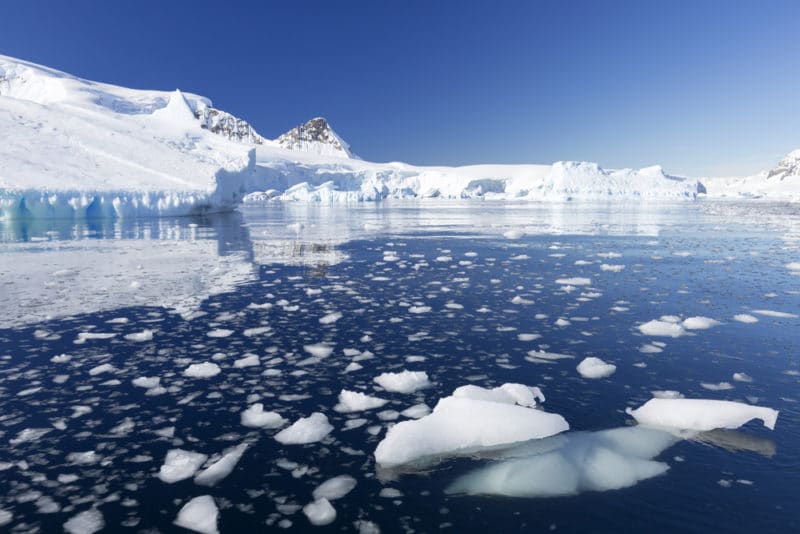Civil society networks, including Indigenous Peoples, climate justice advocates, and environmental organisations, are celebrating the shutdown of the Arctic Ice Project (AIP). The project’s decision to cease operations, citing ecological concerns, marks a significant moment in both local community led and global resistance to geoengineering and harmful technofixes.

The Arctic Ice Project, which proposed spreading reflective synthetic silica-based microspheres on Arctic Sea ice to slow its melting, faced years of criticism from Indigenous communities for its potential to disrupt delicate Arctic ecosystems and perpetuate climate inaction.
This outcome, according to observers, sends a strong signal to proponents of geoengineering that the global community will not accept risky experiments that endanger ecosystems and communities.
“This risky and controversial technofix is emblematic of geoengineering approaches that try to treat the symptoms rather than address the root causes of climate change. The shutdown of this project is a timely reminder that such speculative technofixes cannot replace systemic change. Just last year, the Convention on Biological Diversity (CBD) made a decision to reinforce the precautionary approach to geoengineering and reaffirmed the existing de facto global moratorium on geoengineering,” submitted the Hands Off Mother Earth! (HOME) Alliance.
This victory, according to the group, also comes off the back of other “recently failed geoengineering projects like Alameda marine cloud brightening project, Harvard backed SCoPEx project and the shut down of the Running Tide company”.
Panganga Pungowiyi, Climate Geoengineering Organizer, Indigenous Environmental Network, said: “At IEN, we celebrate the end of the Arctic Ice Project, a decision long overdue. We are concerned for the community members in Utquiavik who were made to spread football fields of this material onto their frozen lake. For years, we stood in defense of Indigenous lands and the sacred ice that has sustained our communities for generations. Our concerns about the reckless use of harmful materials were dismissed, yet we knew that the health of our ecosystems and the wisdom of our people must not be overlooked.
“We continually showed up in defense of Free Prior and Informed Consent, and made our presence known. We continue to state firmly that nature is not a laboratory; it is a living entity we are in relationship with. While we find relief in this victory, we remain vigilant against other forms of geoengineering that threaten our sacred spaces. Together, we will continue to educate and empower our communities, standing with our lands, waters, and air for the generations to come.”
Silvia Ribeiro, Latin America Director, ETC Group: “Arctic Ice Project, like many other geoengineering projects, attempted to use Indigenous Peoples territories to experiment with speculative technologies that involve a range of health and environmental risks. Today we celebrate the wisdom, experience and work of Indigenous Peoples and organizations in Alaska that stopped this project and stand in solidarity with their vigilance against similar experiments that are planned in Arctic regions.”
Coraina de la Plaza, Global Coordinator, Hands Off Mother Earth Alliance: “The cancellation of the Artic Ice Project marks another monumental victory for our planet and future generations, a victory where Indigenous Peoples’ resistance has been central. This outcome reflects the power of community advocacy, and while the fight against geoengineering is far from over, this is a significant step to continue protecting the Arctic against industry greed and vested interests.”
Mary Church, Geoengineering Campaign Manager at Center for International Environmental Law: “This is a huge victory for the Indigenous communities at the forefront of resistance to the industries and vested interests that are polluting the planet and gambling with our collective future. Geoengineering approaches do nothing to address the root causes of the climate crisis and instead delay real solutions, offering a free pass to polluters.
“Following the recent reaffirmation of the global moratorium on geoengineering at the UN biodiversity summit in Colombia, governments need to act to prevent harmful outdoor experiments and the slippery slope to legitimising deployment. Instead of betting on highly speculative techno-fixes, governments must prioritize an urgent and just transition away from fossil fuels to protect vital Arctic ecosystems.”
Benjamin Day, Senior Campaigner for Climate & Energy Justice at Friends of the Earth U.S.: “The decision to shut down the Arctic Ice Project completes The Geoengineering Hype Cycle that we now see so often: entrepreneurs swoop into local communities claiming they have a solution to global warming, assuring everyone it’s completely safe and ignoring the red flags raised by those with deep knowledge of local ecosystems.
“After countless wasted dollars and press attention, it’s revealed the community was right and geoengineering is not a safe or responsible way to address climate change. Collectively, we must stop enabling this cycle and work towards rapidly and equitably transitioning our communities to sustainable energy and land-use practices.”
